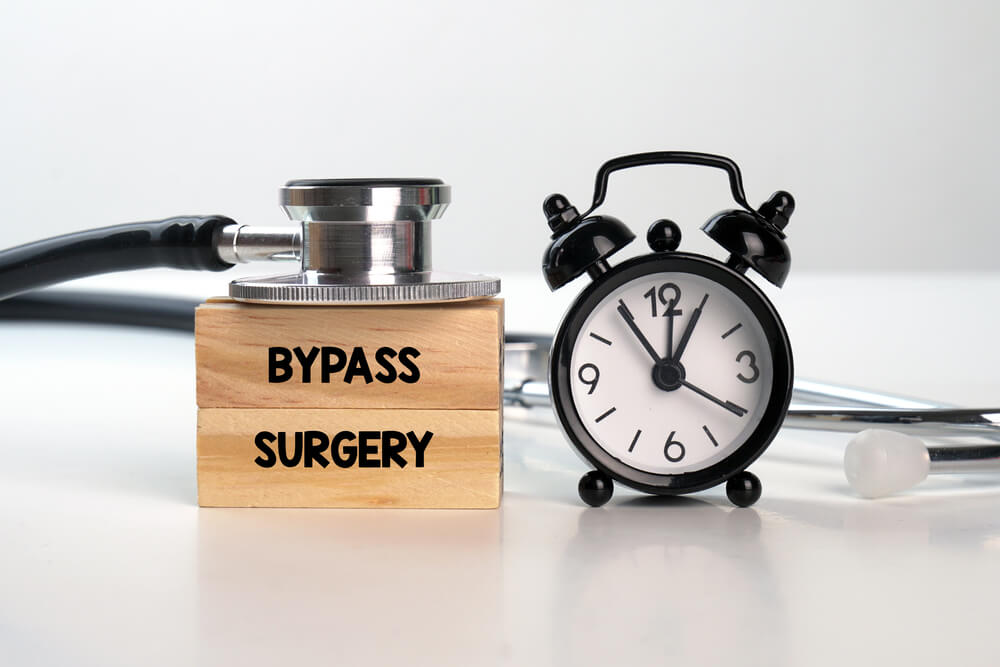Are you obese and find that you aren’t getting your desired weight loss results from diet and exercise? Have you been told that you need to lose a significant amount of weight, and maintain that new weight, to improve your overall health? Are you researching the benefits of bariatric surgery options, such as the ever-popular gastric sleeve surgery?
If so, you are likely wondering what are the pros and cons of bariatric surgery as well as what bariatric surgery costs and whether or not your health insurance provider will pay for it. You may also be wondering if you’re a candidate for a mini-gastric bypass, or if you should consider a gastric bypass alternative instead of undergoing a bariatric procedure. After all, there’s so much to consider when you are contemplating having one of these life-changing procedures performed to lose a significant amount of weight.
As an internal medicine doctor who has helped several obese patients consider the pros and cons of bariatric surgery and make informed decisions about their treatment, I’m here to help you and support you with your weight loss journey. Continue reading for a discussion about these life-changing options – and their alternative – to help you determine which course of treatment is right for you and your unique case.
If you’d like to discuss a specific weight loss procedure with me at my Hialeah medical practice, call my office today at (305) 614-3677.
What Is Gastric Sleeve Surgery?

Gastric sleeve surgery is the most common weight-loss operation performed both in the United States and around the world. In fact, it’s become so routine it’s performed almost as frequently as a gallbladder removal is performed!
With this weight-loss procedure, about 75% to 80% of the stomach is surgically removed. This is one of the biggest benefits of bariatric surgery. As a result of this procedure, your stomach becomes physically incapable of holding as much food as it used to be able to hold.
This means while you’re eating you’ll achieve a feeling of fullness sooner, and you’ll experience a decreased desire to eat and reduction in the body’s natural hunger sensation. All of these factors combined together typically help patients lose 60% to 70% of the weight within one year.
This weight-loss procedure doesn’t come without its risks. Potential complications include:
- Leak
- Stricture
- Infection
- Blood clots
- Acid reflux
- Vitamin deficiency
About 15 to 20 years ago, surgical complications were more commonplace. Thankfully, this has changed. Today, you have a very low risk of experiencing one of the above-mentioned surgical complications. For the most part, the biggest side effects that gastric sleeve surgery patients encounter include:
- Excessive skin and a desire for cosmetic procedures, which health insurance won’t pay for. Many patients who have this operation later go on to resculpt their bodies by having cosmetic procedures like a lower body lift of the belly, buttocks, hips, and thighs; an upper-body lift of the breasts and back; Brachioplasty, which is an arm lift; and a medial thigh lift, which is a lift of the inner and outer thighs.
- Emotional challenges with developing new healthy nutrition and exercise habits. After your procedure to lose a significant amount of weight, you’ll physically be unable to eat as much as you used to be able to eat. This means your relationship with food will need to change, and perhaps some of your regular social activities too. You’ll also need to exercise daily in order to assist weight loss.
- The potential for alcohol abuse, as this operation changes the way the body absorbs alcohol. This means that you won’t be able to drink what you used to be able to drink and have the same outcomes. For some people, this results in a dependency on alcoholic beverages.
When weighing the pros and cons of bariatric surgery and considering the benefits of bariatric surgery, however, the benefits typically outweigh the risks. Patients who undergo this operation usually have better health outcomes and decreased adverse effects from obesity, including reducing their risks for:
- Heart attack
- Stroke
- Cancer
What is a Mini Gastric Bypass?
A mini gastric bypass is a weight-loss operation in which the stomach is divided into an upper pouch and a lower pouch. Next, the small intestine is re-routed. As a result, you’re able to achieve both restrictive and malabsorption weight loss and shed a significant number of pounds.
Many patients consider getting a mini gastric bypass because:
- It’s a shorter operation
- A mini gastric bypass tends to cost less than other weight-loss surgical procedures
- It’s an easier operation for your surgeon to perform
For the most part, this weight-loss operation option has the same risks and benefits as gastric sleeve surgery, so the pros and cons of gastric bypass surgery are similar.
However, patients who have medical conditions such as a hiatus hernia or gastroesophageal reflux disease (GERD) aren’t candidates for this less invasive procedure because they have a higher risk of developing postoperative bile reflux.
What Does Bariatric Surgery Cost?

Some people think that bariatric surgery cost makes the procedure unattainable for them. That’s because the bariatric surgery cost can be anywhere between $10,000 to $25,000 depending on your individual treatment plan, your hospital fees, and the specific bariatric surgeon you choose for your procedure. However, don’t let bariatric surgery cost scare you away from this life-changing operation.
Because of the benefits of bariatric surgery that can improve your overall health and well-being, several health insurance plans cover this operation, at least in part. Health insurance coverage helps you with your bariatric surgery costs and fees. If you’re considering this type of operation, I recommend you contact your health insurance company so you know exactly what financial benefits they’ll offer you, including:
- What deductibles you’ll need to meet.
- What co-pays you may have.
- Whether or not you’ll need to pay co-insurance.
- Who your in-network providers are for your desired treatment, and whether or not your healthcare plan covers out-of-network providers and hospitals.
Additionally, you can check with your work to see if you can sign up for a Flexible Savings Account (FSA) or Health Savings Account (HSA) which allows you to save untaxed income to pay for medical expenses like those associated with these types of operations.
What Are Gastric Bypass Alternative Procedures?
There are gastric bypass alternative options available to you. These include:
- Endoscopic sleeve gastroplasty (ESG), which is a non-surgical procedure. With this gastric bypass alternative, a flexible endoscope is inserted through your mouth, down your throat, and into your stomach to reshape your stomach
- Laparoscopic adjustable gastric banding (LAGB), which is commonly referred to as a lap band. With this gastric bypass alternative, the LAGB, which is an adjustable belt, is placed around the upper part of the stomach. A laparoscope is used to perform the operation
- A gastric balloon, which is a non-surgical procedure in which a silicone balloon is placed in the stomach via an endoscope. The balloon is then filled with a saline solution, which prevents you from eating as much. The gastric balloon must be removed after about six months, though, so this procedure is typically considered a temporary version of getting a lap band.
Whether you choose a bariatric operation or one of these gastric bypass alternatives to help you on your weight loss journey will be up to you and your unique case.
Let Me Help You Consider the Pros and Cons of Bariatric Surgery
I’m happy to share my knowledge of bariatric operations and their alternatives with you, answer your questions and refer you to a specialist who performs the procedure you want. To schedule a consultation with me, call my Hialeah medical practice today at (305) 614-3677.


